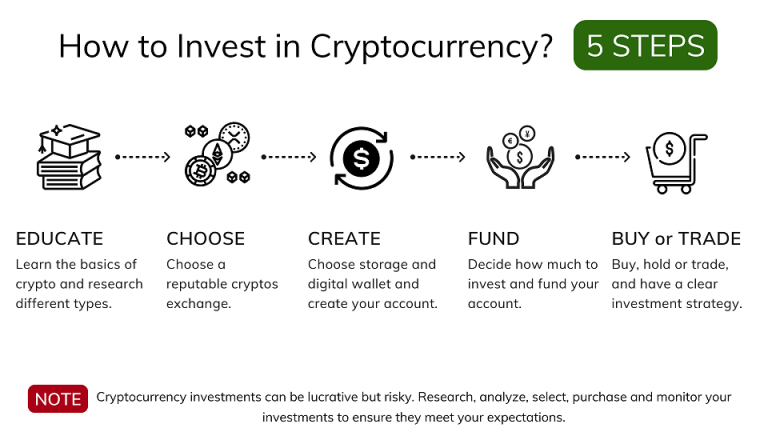As the popularity of cryptocurrencies continues to rise, it’s becoming increasingly important to keep them safe. One of the best ways to do this is by using a crypto wallet. In this article, we’ll explore the key factors to consider when choosing the right crypto wallet for your needs.

A crypto wallet is a nifty digital tool that lets users store, manage, and transact with their cryptocurrencies. Think of it as your virtual wallet in the fascinating world of digital assets. Crypto wallets play a crucial role by acting as the bridge between you and the ever-evolving blockchain network. They hold the user’s public and private keys, which are required to send and receive cryptocurrency transactions.
The need for a crypto wallet stems from the decentralized nature of cryptocurrencies. Gone are the days when a centralized institution managed your funds. Cryptocurrencies empower you to have full control and ownership of your digital assets. In other words, without a crypto wallet, you’d be stranded on Cryptocurrency Island with no way to access, manage, or transfer your digital treasure.
There are three main types of crypto wallets, each with its own unique features and security measures. These are hardware wallets, software wallets, and paper wallets.
Crypto wallets rely on two essential components: public and private keys. These cryptographic strings of characters work together to enable secure transactions.
In a nutshell, grasping the basics of crypto wallets is vital for anyone looking to dive into the world of digital assets. A crypto wallet is your indispensable digital tool for storing, managing, and transacting with your cryptocurrencies. With hardware, software, and paper wallets to choose from, there’s a wallet for every type of crypto enthusiast. Remember, crypto wallets operate using public and private keys, which work together to enable secure transactions on the blockchain network. So, gear up and join the crypto revolution!
Let’s face it, the security of your crypto assets should be your top priority when selecting a wallet. Some essential safety features to look for include two-factor authentication (2FA), multi-signature support, and regular software updates. Hardware wallets tend to offer superior security as they store your private keys offline, significantly reducing the risk of cyberattacks. On the other hand, hot wallets (software wallets) are more susceptible to hacking, but hey, they can still provide adequate security if you choose a reputable provider and follow proper security practices.
Whether you’re a newbie or a seasoned crypto enthusiast, a user-friendly wallet is a must. The wallet should have an intuitive interface, easy-to-understand functions, and responsive customer support. Additionally, it’s essential to consider the availability of the wallet on multiple platforms (mobile, desktop, or web) to ensure seamless access to your funds wherever you are. Look for wallets that offer features like exchange integration, staking options, and support for decentralized applications (dApps) to maximize the benefits of your chosen wallet.
Before you settle on a wallet, make sure it supports the cryptocurrencies you plan to hold or trade. While some wallets cater specifically to Bitcoin or Ethereum users, others support a wide range of digital assets. It’s also important to consider future investments, as some wallets make it easier to add new cryptocurrencies than others. Choosing a wallet with broad compatibility will help you avoid the hassle of managing multiple wallets for different coins. Trust me, you don’t want that headache!
While most software wallets are free to download and use, some may charge fees for specific services, such as trading, staking, or exchanging tokens. Hardware wallets, on the other hand, require an upfront investment to purchase the device. However, they can provide better security and long-term value. When comparing wallets, consider any associated costs and weigh them against the features and benefits offered. It’s essential to strike a balance between cost and security to ensure you’re getting the most out of your investment.
The reputation of a wallet provider is crucial when entrusting them with your digital assets. Do thorough research on the company behind the wallet, including its track record, user reviews, and any known security incidents. Look for wallet providers that have been in the market for a reasonable period and have a proven record of reliability and security. Additionally, seek recommendations from trusted sources within the crypto community, such as forums, social media groups, or friends with experience in the field. Remember, better safe than sorry!
In summary, choosing the right crypto wallet involves a careful evaluation of several factors, including security, South Africability, compatibility, cost, and reputation. By considering these aspects and conducting thorough research, you can make an informed decision and select a wallet that best suits your needs and preferences. Remember that no wallet is perfect, and maintaining your crypto assets’ security ultimately depends on following best practices and staying vigilant against potential threats. Happy crypto investing!

With its easy-peasy interface, Coinbase Wallet has won the hearts of both crypto newbies and veterans. Supporting a smorgasbord of cryptocurrencies like Bitcoin, Ethereum, Litecoin, and various ERC-20 tokens, this wallet is as versatile as a Swiss Army knife. The built-in decentralized exchange (DEX) makes token trading a breeze, and with DeFi platform integration, you’ll be yield farming, lending, and borrowing like a pro in no time!
Are you an Ethereum or DeFi devotee? Then Metamask is the wallet for you! This browser extension not only lets you store and manage Ether and ERC-20 tokens but also opens the door to a world of decentralized applications (dApps) on the Ethereum network. With its user-friendly interface, you’ll be interacting with smart contracts, participating in token sales, and trading on decentralized exchanges like Uniswap with ease.
Worried about losing your private keys? ZenGo is here to save the day! This unique crypto wallet offers keyless security using advanced cryptography, so you can kiss those key-related worries goodbye. Biometric authentication, like facial recognition, ensures that only you can access your funds. ZenGo supports various cryptocurrencies, including Bitcoin, Ethereum, Binance Coin, and Tezos.
Designed with mobile users in mind, Trust Wallet offers a seamless experience across various platforms. Supporting a whopping 160+ cryptocurrencies like Bitcoin, Ethereum, and Binance Smart Chain, you’ll have no trouble managing your digital assets. The wallet also boasts a built-in DEX and DeFi platform integration, so you can dive headfirst into the DeFi ecosystem.
Ambire Wallet is a web-based wallet tailor-made for interacting with decentralized applications (dApps). It supports Ethereum, Binance Smart Chain, and Polygon networks, making it easy to switch between different blockchain ecosystems. With an integrated DEX aggregator, you’ll be able to find the best prices for token swaps across various decentralized exchanges.
Looking for an easy-to-use wallet for your desktop or mobile device? Check out Exodus! Supporting over 100 cryptocurrencies like Bitcoin, Ethereum, and various altcoins, this wallet has you covered. The visually appealing interface and advanced charting tools make managing and monitoring your crypto assets a piece of cake. Plus, with the built-in exchange, you can trade and swap tokens directly from your wallet.
If you’re all about security, Trezor is the hardware wallet for you. Providing top-notch security for long-term crypto storage, it keeps your private keys offline and safe from online threats. Trezor supports a wide range of cryptocurrencies, including Bitcoin, Ethereum, and various altcoins. The user-friendly interface makes it easy to manage your assets and securely sign transactions.
Beginners, rejoice! Blockchain.com Wallet is here to make your crypto journey a breeze. With its simple interface and easy-to-understand features, you’ll be managing your Bitcoin, Ethereum, Bitcoin Cash, and Stellar in no time. The integrated exchange lets you buy, sell, and trade cryptocurrencies directly within the wallet. Plus, it offers security features like two-factor authentication to keep your funds safe and sound.
For businesses and institutional investors, BitGo Wallet is the enterprise-grade solution you’ve been searching for. With advanced security features like multi-signature technology, your digital assets will be protected. BitGo supports over 100 cryptocurrencies, including Bitcoin, Ethereum, and various ERC-20 tokens. The robust API makes it easy to integrate the wallet into your existing infrastructure, streamlining the management of your crypto assets.

Hardware wallets are physical devices specifically designed to store cryptocurrency securely. These wallets are known for their strong security features, as they store your private keys offline, making it nearly impossible for hackers to access your funds. This is a significant advantage over software wallets, which can be more vulnerable to cyber-attacks. Hardware wallets also offer additional security measures, such as PIN codes and physical buttons that need to be pressed to confirm transactions.
However, hardware wallets can be less accessible than software wallets. To access your funds, you need to have the physical device with you, which can be inconvenient if you need to make frequent transactions or access your funds on-the-go. Additionally, hardware wallets typically support a limited number of cryptocurrencies, which may be a downside if you own a diverse portfolio of digital assets.
Cost is another factor to consider when choosing a hardware wallet. These devices are generally more expensive than software wallets, with prices ranging from $50 to $200, depending on the features and brand. This initial investment may be a deterrent for some users, especially those who are new to cryptocurrency or have a smaller portfolio.
Software wallets are digital applications that store your cryptocurrency on a computer, smartphone, or other internet-connected device. These wallets are known for their convenience and ease of use, as you can access your funds anytime and anywhere with an internet connection. Software wallets also tend to support a wider range of cryptocurrencies than hardware wallets, making them a more versatile option for users with diverse crypto holdings.
However, software wallets are more vulnerable to cyber-attacks, as they store your private keys online. Hackers can exploit vulnerabilities in the wallet software or gain access to your device, potentially leading to the loss of your funds. Some software wallets offer additional security features, such as encryption and two-factor authentication, but they still cannot match the security of hardware wallets.
In terms of features, software wallets often provide a user-friendly interface and additional tools, such as portfolio tracking, price alerts, and in-app exchanges. These features can make managing your cryptocurrency holdings more efficient and enjoyable, but it’s essential to weigh the convenience against the potential security risks.
When choosing between hardware and software wallets, it’s essential to consider your unique needs and preferences. Here are some factors to help you make the right decision:
Ultimately, the best wallet for you will depend on your individual needs, preferences, and risk tolerance. Consider the pros and cons of each type of wallet and choose the one that aligns best with your personal requirements. And remember, no matter which type of wallet you choose, always keep your private keys safe and secure!

Let’s kick things off with the basics – a strong, unique password is your first line of defense in safeguarding your crypto assets. Aim for a minimum of 12 characters, combining upper and lowercase letters, numbers, and special characters. Steer clear of easily guessable info like birthdates, names, or common phrases. After all, “password123” isn’t going to cut it!
Using a unique password for each wallet or account is crucial, as it helps prevent unauthorized access if one of your passwords is compromised. To keep track of your passwords without pulling your hair out, consider using a reputable password manager. These handy tools encrypt your passwords and generate random, strong passwords for each account, so you won’t be tempted to reuse “password123” everywhere.
Think of two-factor authentication (2FA) as your trusty sidekick in the battle against cyber threats. By requiring two forms of identification (like a one-time code sent to your phone or generated by an app like Google Authenticator), 2FA significantly reduces the chances of unauthorized access, even if your password is compromised.
Be sure to enable 2FA for all your crypto wallets, exchanges, and any other accounts related to your digital assets. And don’t forget to store your 2FA backup codes in a secure location, because losing access to your 2FA method could be a one-way ticket to Locked-Out-Of-Your-Accountsville.
Just like you wouldn’t wear last season’s fashion, you shouldn’t use outdated software. Developers regularly release security updates and patches to fix vulnerabilities, so it’s essential to keep your wallet software, operating system, and related applications up-to-date.
Enable automatic updates whenever possible and get into the habit of checking for new updates regularly. And remember, only download wallet software from reputable sources and verify the authenticity of updates before installing – better safe than sorry!
Backing up your wallet and private keys is like having a spare key for your house – you’ll be glad you have it when you need it. Regularly create backups, especially after adding new cryptocurrencies or creating new addresses.
Phishing scams and other online threats are like that pesky mosquito that keeps buzzing around your ear – annoying and potentially harmful. Stay vigilant when accessing your wallets, opening emails, or clicking on links related to your crypto assets.
Always double-check website URLs and make sure they have a valid SSL certificate (look for the padlock icon in the address bar). Be cautious with links in emails, social media messages, or chat applications, especially if they seem to come from your wallet provider or exchange. When in doubt, trust your instincts and contact the company directly to verify the authenticity of any communication.
In a nutshell, protecting your crypto assets is all about following these best practices: strong, unique passwords, enabling two-factor authentication, keeping software up-to-date, regular backups, and staying alert against online threats. With these measures in place, you’ll be well on your way to securing your valuable digital assets.

